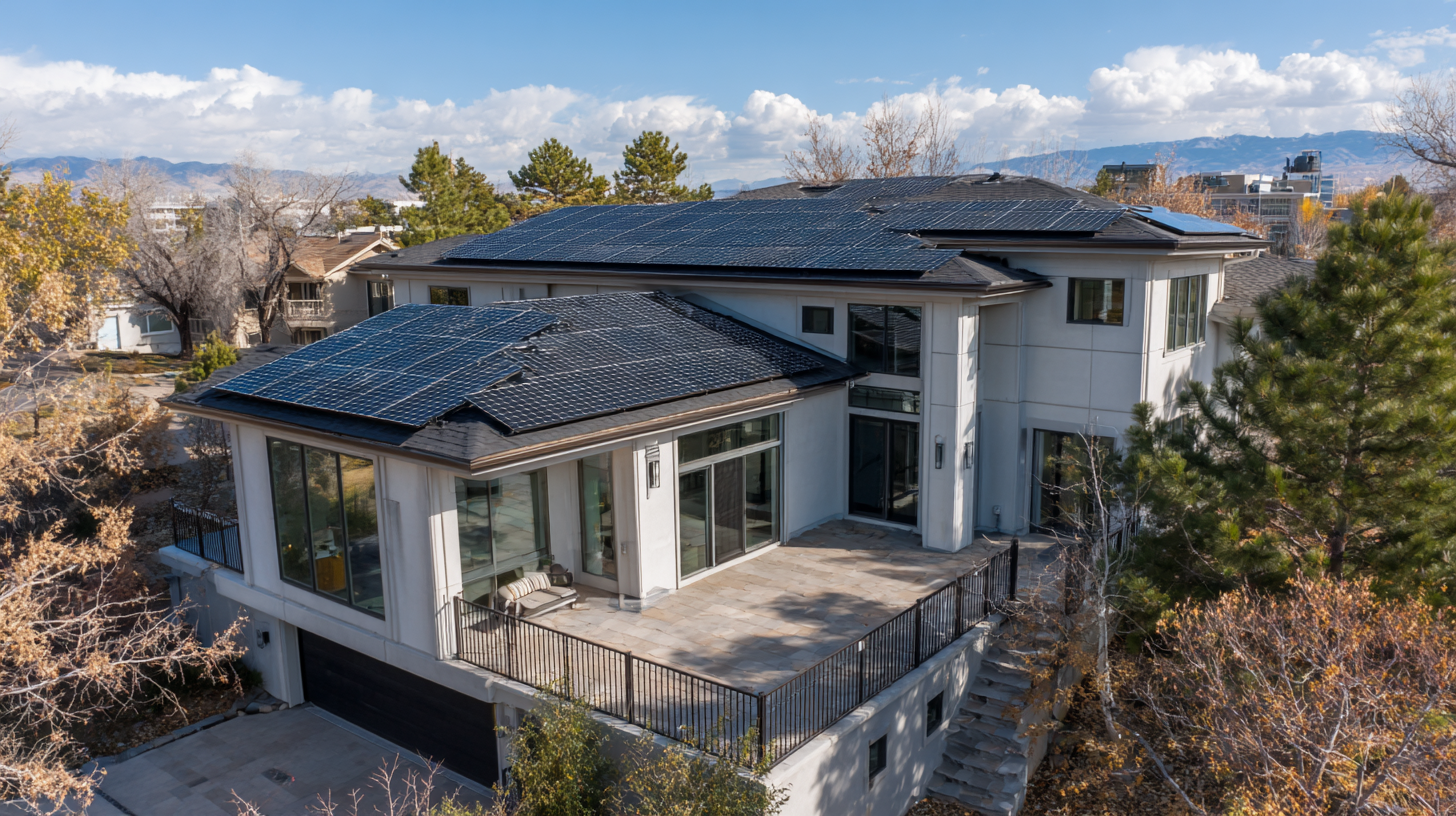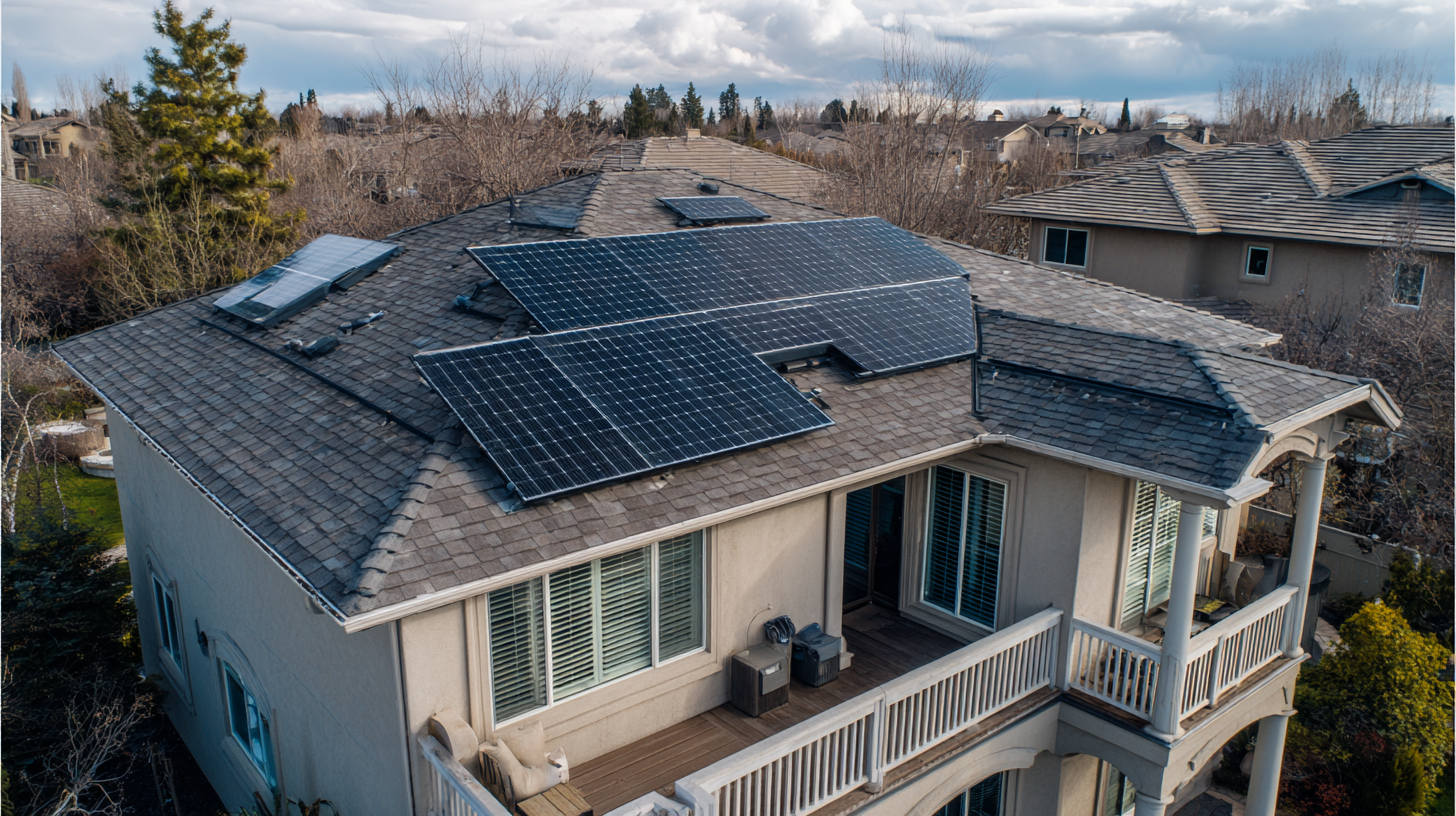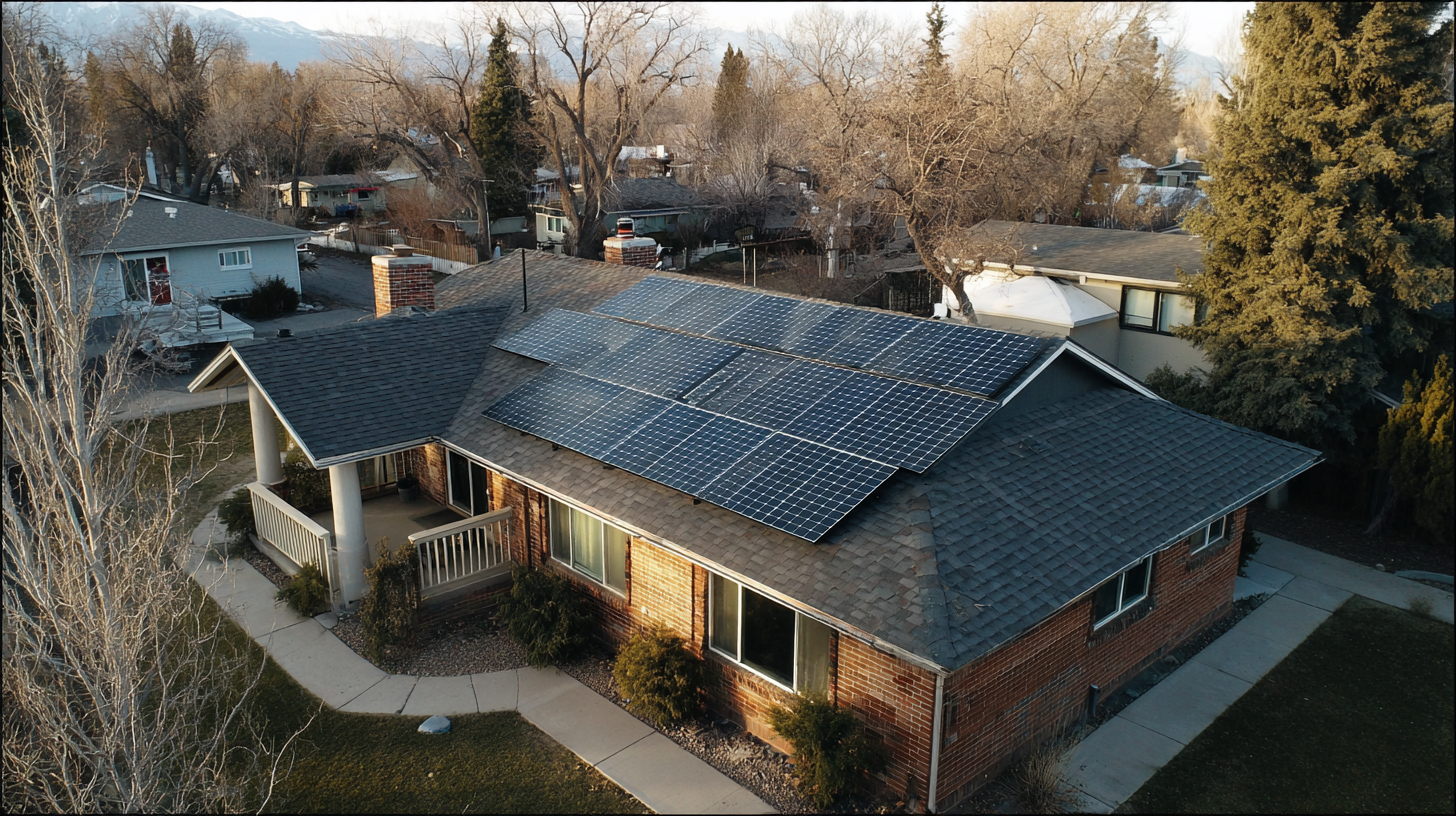As homeowners increasingly seek sustainable and cost-effective energy solutions, residential solar systems have emerged as a popular choice for transforming energy consumption in 2023. With advancements in technology and decreasing installation costs, harnessing the power of the sun has never been more accessible. This blog will explore the seven best residential solar solutions available today, providing an in-depth checklist to guide homeowners through their options. From selecting the right type of solar panels to understanding financing options, we aim to equip you with the essential information you need to make an informed decision. Join us as we delve into the transformative potential of residential solar, helping you to not only reduce your carbon footprint but also save on energy bills in the long run.

When choosing the right residential solar system, several key factors should be considered to ensure optimal performance and suitability. First and foremost, evaluating your home's energy needs is crucial. Understanding your consumption patterns helps in selecting an appropriate system size that can deliver the necessary power. Additionally, regional factors, such as available sunlight, climate conditions, and local regulations, significantly influence the effectiveness of solar installations. In regions like Oman, where the goal is to reach a 30% renewable energy mix by 2040, understanding these local dynamics is essential for homeowners looking to invest in solar technology.

Another vital aspect to consider is the type of solar inverter you will use. The inverter is responsible for converting direct current (DC) electricity generated by solar panels into alternating current (AC), which powers your home. The effectiveness of this device can impact overall system efficiency, making it imperative to choose high-quality options. Furthermore, exploring financing choices, such as solar loans versus land leases, is essential based on whether you prioritize long-term ownership benefits or immediate lower commitment options. Careful consideration of these factors will not only enhance your solar investment but also contribute to a sustainable energy future.
When considering residential solar solutions in 2023, understanding the performance and reliability of solar panel brands is essential. According to the latest report by the Solar Energy Industries Association (SEIA), the market for solar panels has grown exponentially, with installations projected to surpass 30 gigawatts this year alone, highlighting the increasing reliance on solar technology for residential use.
In the competitive landscape, five brands consistently stand out: SunPower, LG, Canadian Solar, JinkoSolar, and Q CELLS. SunPower leads the pack with an impressive efficiency rating of up to 22.8%, thanks to their Maxeon cells that outperform many competitors in both efficiency and longevity. LG also boasts remarkable performance, with its NeON R series offering robust warranties and minimal degradation over time—typically less than 0.3% per year according to independent tests. Meanwhile, Canadian Solar and JinkoSolar are recognized for providing excellent value, striking a balance between cost and performance, while Q CELLS has made a name for itself with innovative technology that maximizes energy production even in low-light conditions. As homeowners move toward sustainable energy solutions, these brands are at the forefront of the solar revolution.
When considering a solar energy system for your home, understanding inverter options is crucial for maximizing efficiency and performance.
Inverters are vital components that convert the direct current (DC) generated by solar panels into alternating current (AC) for household use. The choice of inverter can significantly impact the overall energy production of your solar system. According to the National Renewable Energy Laboratory (NREL), the right inverter selection can lead to energy savings of up to 20% through optimized performance and minimized losses.
There are primarily three types of inverters:
In 2023, maximizing solar energy usage at home involves integrating advanced storage solutions that enhance overall energy efficiency. Recent studies showcase that hybrid solar systems, combining photovoltaics with battery storage, can reduce electricity costs significantly. For instance, the peak demand shaving strategy highlights how a solar PV-battery system can decrease reliance on grid electricity during high-demand periods, which is crucial in regions with a fluctuating tariff structure. By leveraging stored solar energy during peak hours, homeowners can realize substantial savings on their monthly electricity bills.
Artificial intelligence also plays a pivotal role in evolving solar storage solutions. These intelligent systems adapt to real-time environmental conditions, optimizing performance and enhancing sustainability. Current findings indicate that such adaptive systems could significantly improve energy yield. Additionally, research suggests that hybrid renewable energy systems, particularly those integrating solar and wind, present a promising opportunity for residential applications. As technology advances, understanding these innovative storage solutions will empower homeowners to take greater control of their energy consumption, paving the way for a more sustainable future.
Financing a solar installation can be daunting, but with innovative strategies available in 2023, homeowners can transform their energy consumption sustainably and affordably. According to the Solar Energy Industries Association (SEIA), the average cost of residential solar systems has decreased by over 70% since 2010, making solar more accessible than ever. This reduction in price opens the door for various financing options, including solar loans, leases, and power purchase agreements (PPAs), allowing homeowners to choose a solution that best fits their financial situation.

One effective strategy is to explore federal tax credits and local incentives. The federal solar investment tax credit (ITC) allows homeowners to deduct 30% of the total cost of their solar installation from their federal taxes. Additionally, many states and municipalities offer rebates and grants; for example, California's statewide initiatives can reduce installation costs significantly. As per the Lawrence Berkeley National Laboratory, homes with solar panels sold for about 4.1% more than comparable homes without solar, highlighting the long-term financial benefits of investing in solar energy. With these financing strategies, homeowners not only save on electricity bills but also invest in the value of their property.
As electricity costs continue rising, many small households in Maharashtra seek sustainabl...Read More
Uttar Pradesh is making significant progress in adopting renewable energy, particularly so...Read More
With the Indian government actively promoting renewable energy through subsidies and polic...Read More
Tired of watching your electricity bills climb month after month and strain your pockets? ...Read More
Switching to solar energy in Gujarat has never been more profitable! With plenty of sunlig...Read More
If you live in Madhya Pradesh and want to save money on power while living a greener lifes...Read More
If you’re a resident of Bangalore looking to save on your skyrocketing electricity b...Read More
If you live in Karnataka and have been looking for an environmentally friendly, cost-effec...Read More
Delhi is a city that thrives on its vibrant energy, and what better way to complement that...Read More
As electricity costs continue rising, many small households in Maharashtra seek ...Read More
Uttar Pradesh is making significant progress in adopting renewable energy, parti...Read More
With the Indian government actively promoting renewable energy through subsidies...Read More